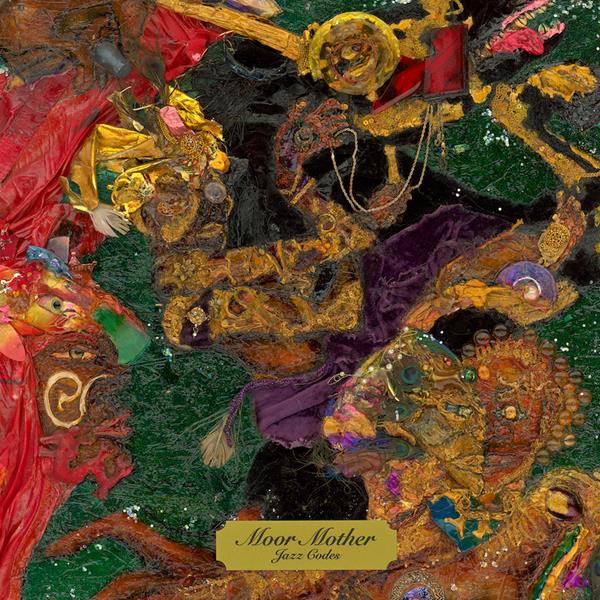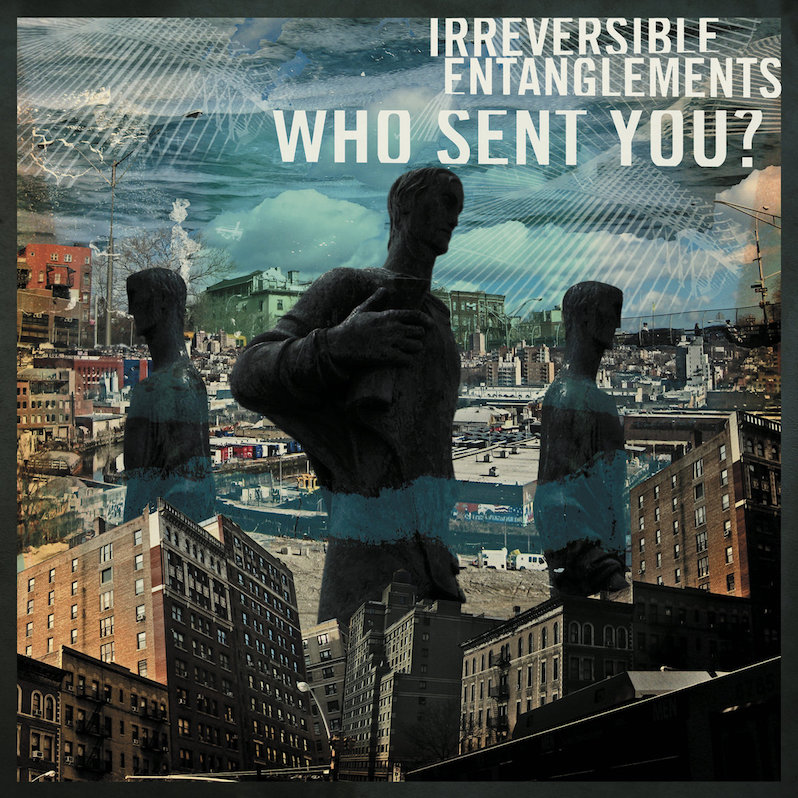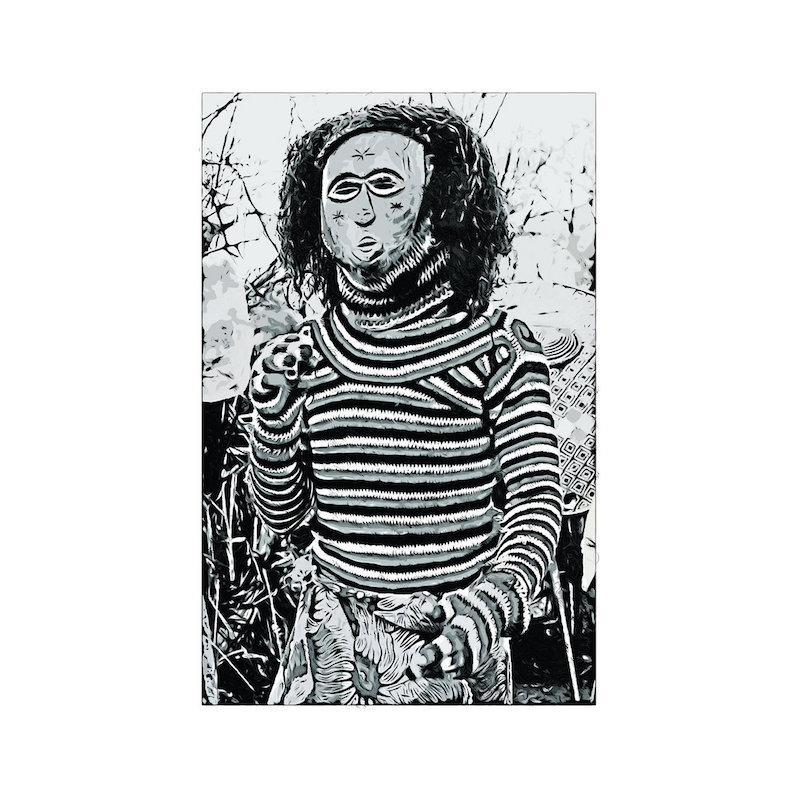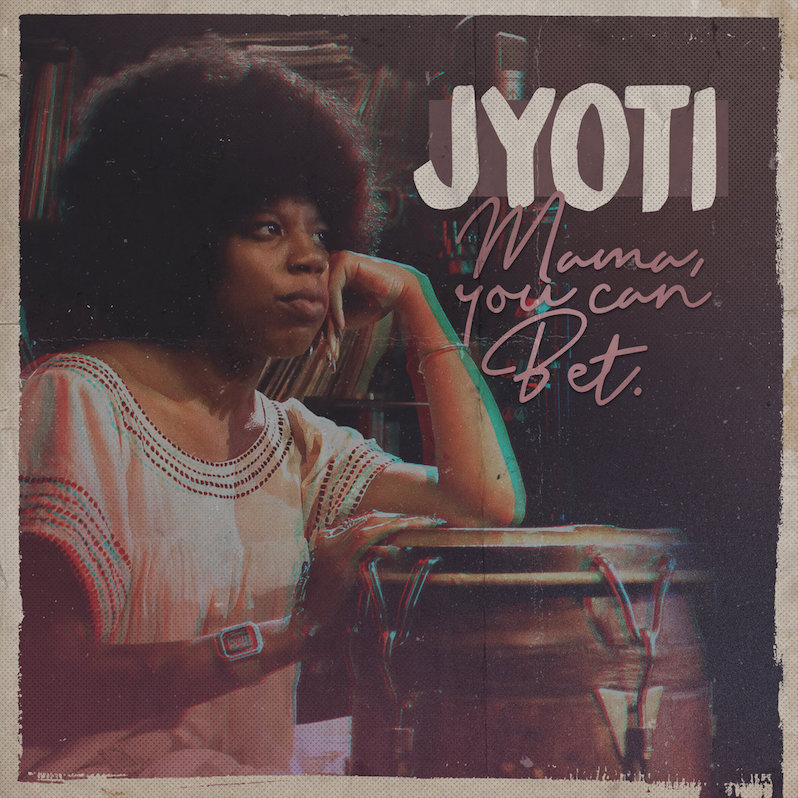Moor Mother – Jazz Codes

Moor Mother‘s new record is bookended by tracks featuring both of her groups, the opener featuring Black Quantum Futurism while the closer features Irreversible Entanglements. This structure feels deliberate, as do many other elements of this record. Take, for example, the simple and strident title of Jazz Codes, an implication of definition or summation. Or perhaps look at the guest list, featuring her widest array of collaborators to date, with every track save one crediting at least one collaborator. Even before pressing play, you get the sense that this record is meant as something bigger and more grandiose than her previous records. While older acclaimed works like her debut Fetish Bones or recent high-water marks like the free jazz-driven Circuit City or the much more rap-driven Black Encyclopedia of the Air had concise and well-developed conceptual cores, hinging themselves on a combined aesthetic and poetic fusion of sensibilities, Jazz Codes marks itself from the outset as auto-critical, unifying, a Pollock-style thesis made of assembled fragments.
So it feels only fitting then that this record’s material is the most undeniably jazz of her solo work thus far. While previous records under the Moor Mother name might better have been conceived of as hip-hop albeit with a strong avant-garde and jazz bent, on Jazz Codes the tables are turned, almost like reversing the big bang, seeing all the fragmenting genres birthed from jazz pouring back to its mother source. These songs, which pass like experimental fragments of melodies and sonic palettes, movements of a whole rather than pieces designed to be excised and played apart from one another in alienation, feature everything from R&B to nu-jazz to free jazz to, of course, hip-hop and more. There is a keening trumpet from the fog like the breathy intimacy of Matthias Eick; there are distant piano-driven architectural pieces like from peak ECM records; there are blues poetry rambles, notes of Billie Holiday and Duke Ellington; there’s the avant-garde from the Necks to her own jazz group Irreversible Entanglements, themselves cutting their own swath across the jazz landscape.
About halfway through the record, the title makes sense: Jazz codes. This is what jazz is in her eyes, stripped of its conservative bent, the dumb fools that called what Charlie Parker did “Chinese music” (an odd and uncomfortable racist jab from the Duke himself), the ingrates who said Miles ruined it all by going electric and incorporating funk, the people who dismissed Prince and hip-hop both as illegitimate before turning around and saying the same of people who tried to bring electronica into the fold. Where previous records from Moor Mother featured a unified sonic aesthetic, one cohering around either free improvisation or tight hip-hop elaborated by adventurous accompaniment or avant-garde electronic components, here she dances free across the entire palette. The resulting thread is shockingly coherent: the spirit of jazz. These kinds of exercises are somewhat intimidating to others, too easy to come across as either pretentious or condescending, of which Moor Mother comes across as neither. Jazz Codes reads like a celebration as well as a loving middle finger to the types that killed jazz. After all, given its strong roots in R&B and hip-hop and the avant-garde and experimental scenes of the west, it wasn’t killed off because people stopped liking it; it died because people who fought in its name started to shout at people that what they loved wasn’t jazz anymore.
Moor Mother shows here a level of conceptual coherence that escapes people that are formalists. A similar discussion comes up in other musical worlds. In prog, for example, there’s the ever-repeated and ever-so-tedious argument: is it prog to sound like old groups and records of the genre? or to progress the form, to capture that spiritual element? Jazz Codes clearly bypasses both arguments, repeatable form versus spiritual impulse, by saying the obvious: it’s clearly both, always has been. The result is an opening door, a sense of approachability, a statement that if you like jazz then you probably already like rap even if you didn’t know it, that if you like rap you already like free jazz, that if you like any of those then the electronic avant-garde is already something you find agreeable. This is a shockingly necessary statement to make: that those of us deeply enamored with the underground will still find motes of what we love mirrored in the mainstream records and forms and that, vice versa, those that think they can only approach the most pop formulations of these sounds will find elements they already love mirrored down here. It’s a bridge, the kind of thing you can only make with this kind of holistic unity-by-mosaic. That the pieces are endlessly tuneful, the world’s best music to read and think and fuck and write and drink to, is a wonderful added benefit.
Label: Anti-
Year: 2022
Similar Albums:
Langdon Hickman is listening to progressive rock and death metal. He currently resides in Virginia with his partner and their two pets.




